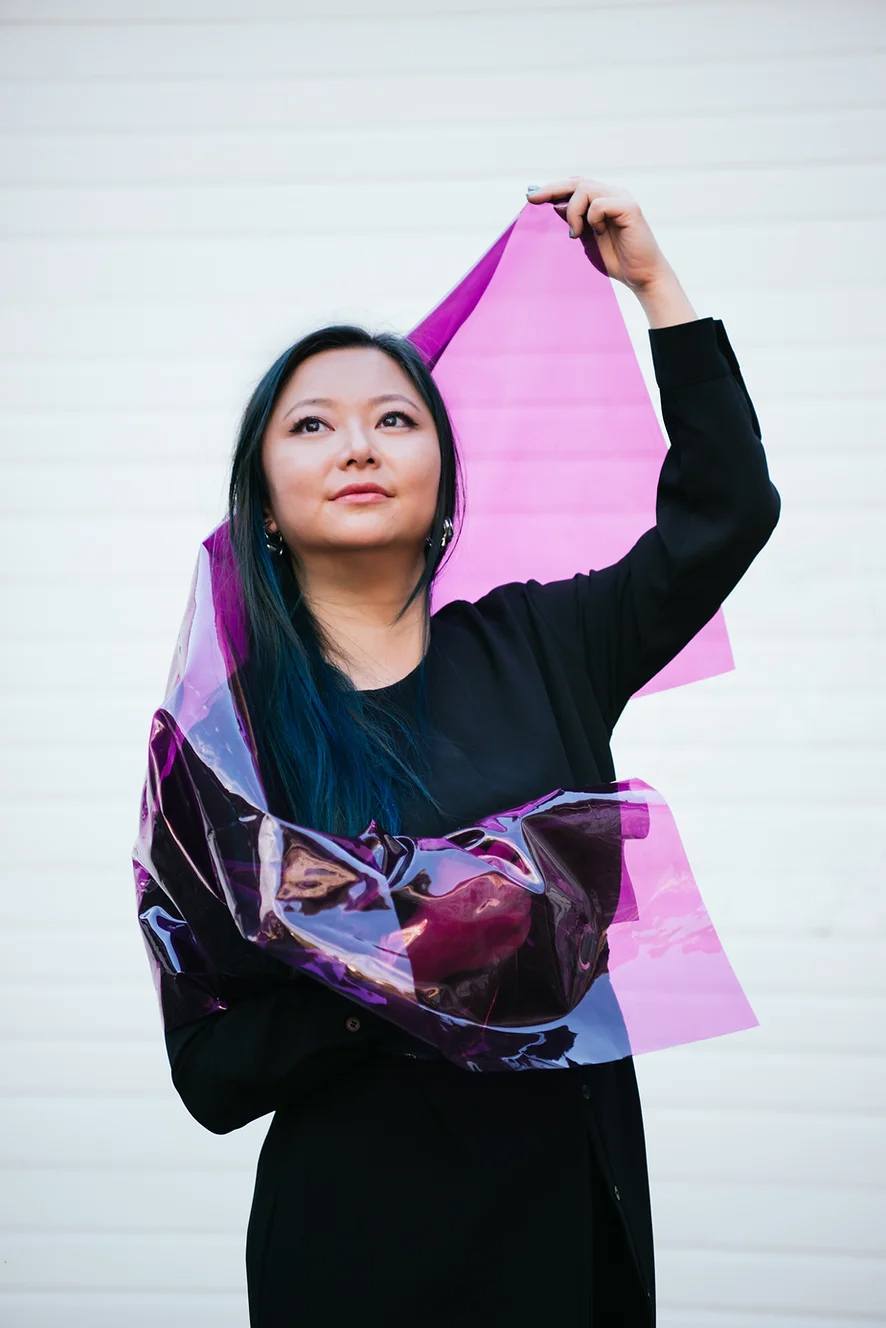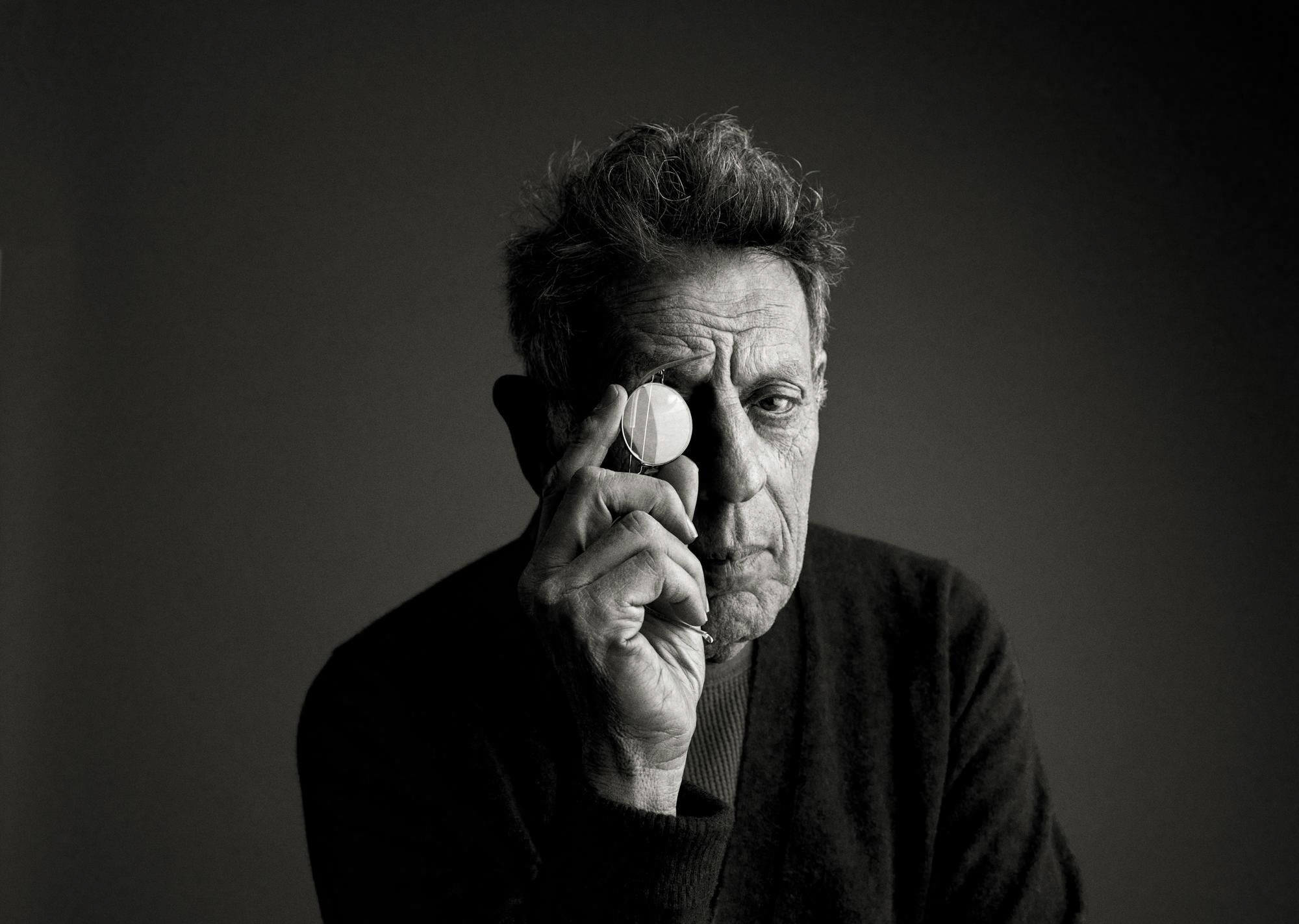
Vicky Chow (piano) (She/Her) Hong Kong/Canadian pianist Vicky Chow has been described as “brilliant” (New York Times) and “one of our era’s most brilliant pianists” (Pitchfork). Since joining the Bang on a Can All-Stars in 2009, she has collaborated and worked with composers/artists/ensembles/orchestras such as Tania León, Meredith Monk, Steve Reich, Philip Glass, Terry Riley, George Lewis, Bill T. Jones/Arnie Zane Dance Company, Sasha Waltz Dance Company, Doug Varone Dance Company, BBC Orchestra, LA Philharmonic, Toronto Symphony Orchestra, Symphonietta Riga, International Contemporary Ensemble, The Knights, Tyshawn Sorey,
Andy Akiho, John Zorn, Gong Linna, Kronos Quartet, Longleash Trio, Trinity Choir, Wet Ink Ensemble, Yarn/Wire, Momenta Quartet to name a few. She has toured to over 40 countries and has performed in various venues in New York including Carnegie Hall, Guggenheim Museum, MOMA, MOMA PS1, Park Avenue Armory, National Sawdust, The Shed, Roulette, Walt Disney Concert Hall in Los Angeles, Muziekgebouw in Amsterdam, EMPAC in Troy New York, Hong Kong Arts Centre, Barbican Centre, Southbank Centre, Royal Albert Hall for the BBC Proms in London, L'auditori in Barcelona, Tivoli Vrendenburg in Utrecht Netherlands, ZKM in Karlsruhe Germany, City Recital Hall in Sydney Australia, Konzertzāle Latvija in Venspils, POLIN Museum in Warsaw, Poland, in the Teatro Colón in Buenos Aires Argentina and many others.
About her recording of Michael Gordon’s Sonatra, The New Yorker wrote, “Sonatra is a milestone of composition, and Vicky Chow’s recording of it is a milestone of pianism." Her album Tristan Perich: Surface Image released in 2013 on New Amsterdam Records was among the top 10 Avant Music albums in Rolling Stone. She recently released Jane Antonia Cornish: Sierra ("Cornish’s landscape is lush, sun-baked, and a little hazy in the afternoon light, and Chow is adept and adroit at bringing out the glistening imagery painted in each track, with synesthetic titles like Sky, Ocean, Sunglitter, and Last Light." - VAN, "a reflective and subtle work, Sky for multiple layers of pianos. . . played by the versatile and talented Vicky Chow" - WNYC New Sounds) as well as Cassie Wieland: HYMN, both on the Cantaloupe label. In October 2022, she released Philip Glass: Piano Etudes Book 1 in celebration of Mr. Glass's 85th birthday which Mr. Glass says, ""It's a highly dynamic and expressive performance. There's a certain energy that is uniquely hers."". Her other recordings can be found on Nonesuch, New Amsterdam, Tzadik, among others.
Originally from Vancouver, Canada, she is based in Brooklyn, NY. She serves as faculty at the Bang on a Can Summer Institute and has been on faculty at the Banff Centre for Arts and Creativity. She is on the Board of Advisors for Composers Now, and is also a mentor at The Juilliard School. A graduate of The Juilliard School (B.M. '05, M.M. '07 Piano Performance) and The Manhattan School of Music (M.M. Contemporary Performance '09) Ms. Chow is a Yamaha Artist.

Through his operas, his symphonies, his compositions for his own ensemble, and his wide-ranging collaborations with artists ranging from Twyla Tharp to Allen Ginsberg, Leonard Cohen to David Bowie, Philip Glass has had an extraordinary and unprecedented impact upon the musical and intellectual life of his times.
The operas – “Einstein on the Beach,” “Satyagraha,” “Akhnaten,” and “The Voyage,” among many others – play throughout the world’s leading houses, and rarely to an empty seat. Glass has written music for experimental theater and for Academy Award-winning motion pictures such as “The Hours” and Martin Scorsese’s “Kundun,” while “Koyaanisqatsi,” his initial filmic landscape with Godfrey Reggio and the Philip Glass Ensemble, may be the most radical and influential mating of sound and vision since “Fantasia.” His associations, personal and professional, with leading rock, pop and world music artists date back to the 1960s, including the beginning of his collaborative relationship with artist Robert Wilson. Indeed, Glass is the first composer to win a wide, multi-generational audience in the opera house, the concert hall, the dance world, in film and in popular music – simultaneously.
He was born in 1937 and grew up in Baltimore. He studied at the University of Chicago, the Juilliard School and in Aspen with Darius Milhaud. Finding himself dissatisfied with much of what then passed for modern music, he moved to Europe, where he studied with the legendary pedagogue Nadia Boulanger (who also taught Aaron Copland , Virgil Thomson and Quincy Jones) and worked closely with the sitar virtuoso and composer Ravi Shankar. He returned to New York in 1967 and formed the Philip Glass Ensemble – seven musicians playing keyboards and a variety of woodwinds, amplified and fed through a mixer.
The new musical style that Glass was evolving was eventually dubbed “minimalism.” Glass himself never liked the term and preferred to speak of himself as a composer of “music with repetitive structures.” Much of his early work was based on the extended reiteration of brief, elegant melodic fragments that wove in and out of an aural tapestry. Or, to put it another way, it immersed a listener in a sort of sonic weather that twists, turns, surrounds, develops.
There has been nothing “minimalist” about his output. Glass has composed more than thirty operas, large and small; fourteen symphonies, thirteen concertos; soundtracks to films ranging from new scores for the stylized classics of Jean Cocteau to Errol Morris’s documentary about former defense secretary Robert McNamara; nine string quartets; a growing body of work for solo piano and organ. He has collaborated with Paul Simon, Linda Ronstadt, Yo-Yo Ma, and Doris Lessing, among many others.
“When I first encountered these pieces,” Vicky Chow recalls of the Etudes for Solo Piano by Philip Glass, “I was brought back to my roots of playing piano. Each one is so different — they can be very sophisticated and simple at the same time. So for me, it was all about going back to playing acoustic piano, with no electronics or extended technique or preparation, and utilizing that part of my brain.”
Glass has said that he composed the Etudes “to explore a variety of tempi, textures, and piano techniques,” and as the title suggests, these are keyboard studies at their most elemental and freewheeling. The composer also sought to refine his own piano technique (he began work on the Etudes in the early 1990s), exploring a range of moods and emotions that shift from hypnotic to stark, meditative to ebullient and beyond.
The original Etudes were compiled into two books of ten individual pieces each. While the work has been recorded by numerous pianists over the years — including, of course, Glass himself — Chow’s interpretation stands out, attributable in part to her own connections with the composer, as well as their shared presence in New York City’s new music community. Chow has been a member of the Bang on a Can All-Stars for over a decade; she first met Glass while performing with him on stage, at the same piano, during one of the legendary Bang on a Can Marathons staged annually in the city.
Years later, Chow encountered the composer again at the 2018 Winnipeg New Music Festival, with four other pianists, for a performance of all twenty Etudes. “He sat at the side of the stage and listened while we played,” she recalls. “He was very encouraging to all of us. He really cared about the music, and you could tell he was grateful and supportive. And I mean, he’s Philip Glass, you know? He wanted to share his thoughts with all of us. He was really genuine and down-to-earth.”
Thanks for attending this performance. If you have enjoyed your experience, please consider donating to the College of Musical Arts in support of our students and programming. Donate online at bgsu.edu/givecma, or call Sara Zulch- Smith at 419-372-7309.
To our guests with disabilities, please indicate if you need special services, assistance or appropriate modifications to fully participate in our events by contacting Accessibility Services, access@bgsu.edu, 419-372-8495. Please notify us prior to the event.
Audience members are reminded to silence alarm watches, pagers and cellular phones before the performance. As a matter of courtesy and copyright law, no recording or unauthorized photographing is allowed. BGSU is a nonsmoking campus.
Updated: 09/18/2024 03:45PM
